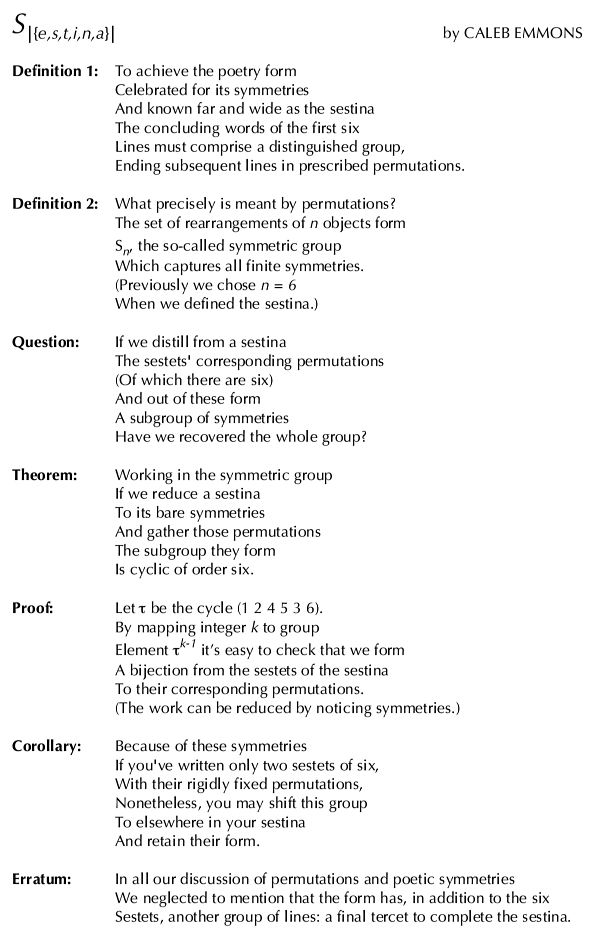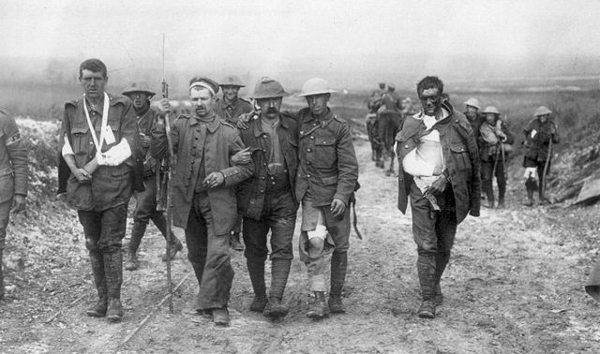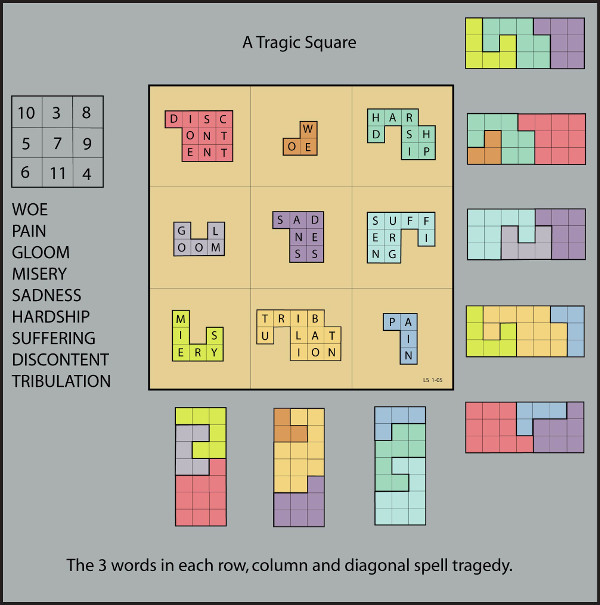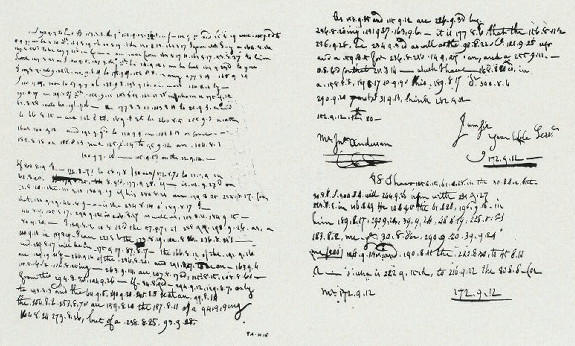The sestina is an unusual form of poetry: Each of its six stanzas uses the same six line-ending words, rotated according to a set pattern:

This intriguingly insistent form has appealed to verse writers since the 12th century. “In a good sestina the poet has six words, six images, six ideas so urgently in his mind that he cannot get away from them,” wrote John Frederick Nims. “He wants to test them in all possible combinations and come to a conclusion about their relationship.”
But the pattern of permutation also intrigues mathematicians. “It is a mathematical property of any permutation of 1, 2, 3, 4, 5, 6 that when it is repeatedly combined with itself, all of the numbers will return to their original positions after six or fewer iterations,” writes Robert Tubbs in Mathematics in Twentieth-Century Literature and Art. “The question is, are there other permutations of 1, 2, 3, 4, 5, 6 that have the property that after six iterations, and not before, all of the numbers will be back in their original positions? The answer is that there are many — there are 120 such permutations. We will probably never know the aesthetic reason poets settled on the above permutation to structure the classical sestina.”
In 1986 the members of the French experimental writers’ workshop Oulipo began to apply group theory to plumb the possibilities of the form, and in 2007 Pacific University mathematician Caleb Emmons offered the ultimate hat trick: A mathematical proof about sestinas written as a sestina:

Bonus: When not doing math and poetry, Emmons runs the Journal of Universal Rejection, which promises to reject every paper it receives: “Reprobatio certa, hora incerta.”
(Caleb Emmons, “S|{e,s,t,i,n,a}|“, The Mathematical Intelligencer, December 2007.) (Thanks, Robert and Kat.)









